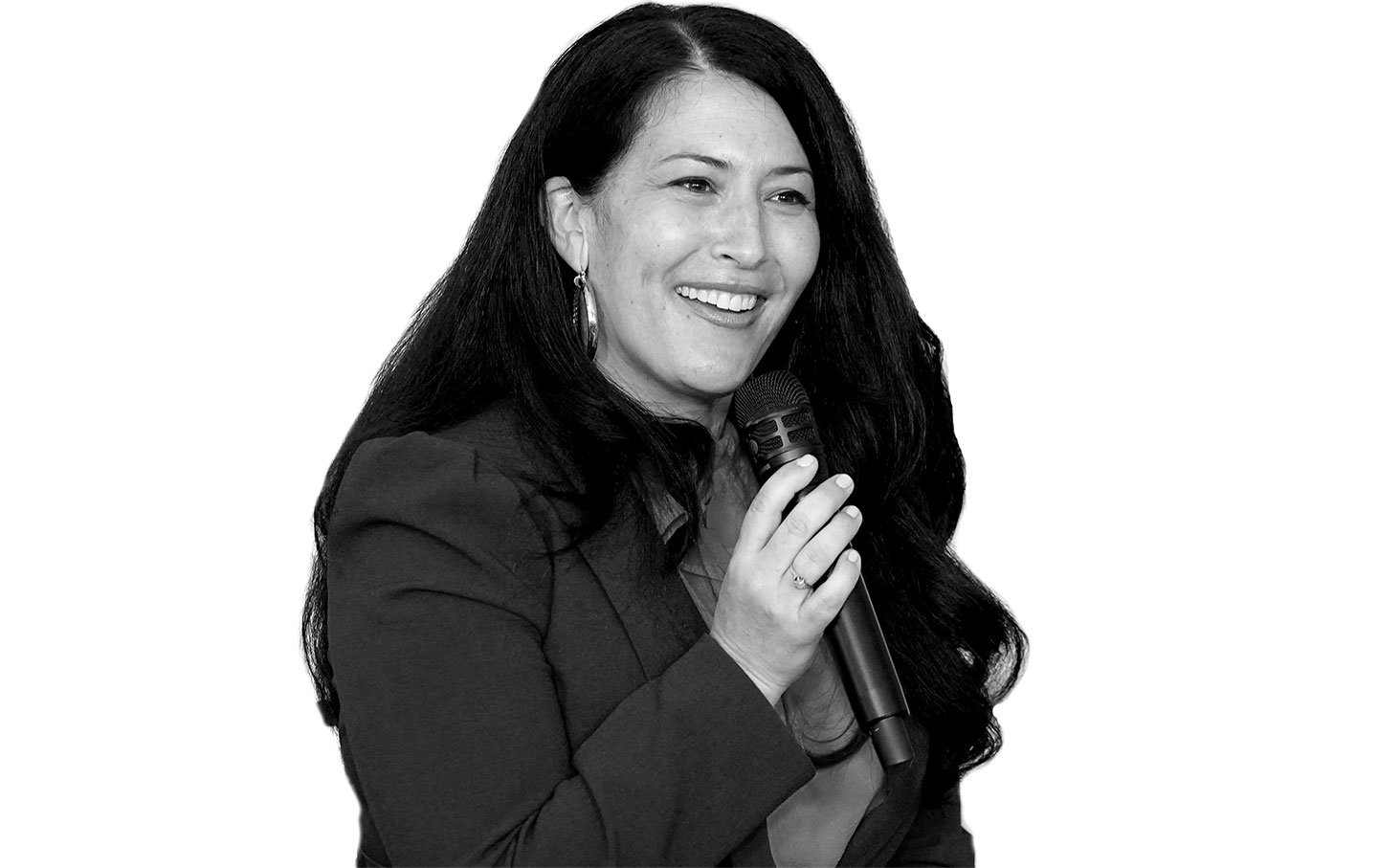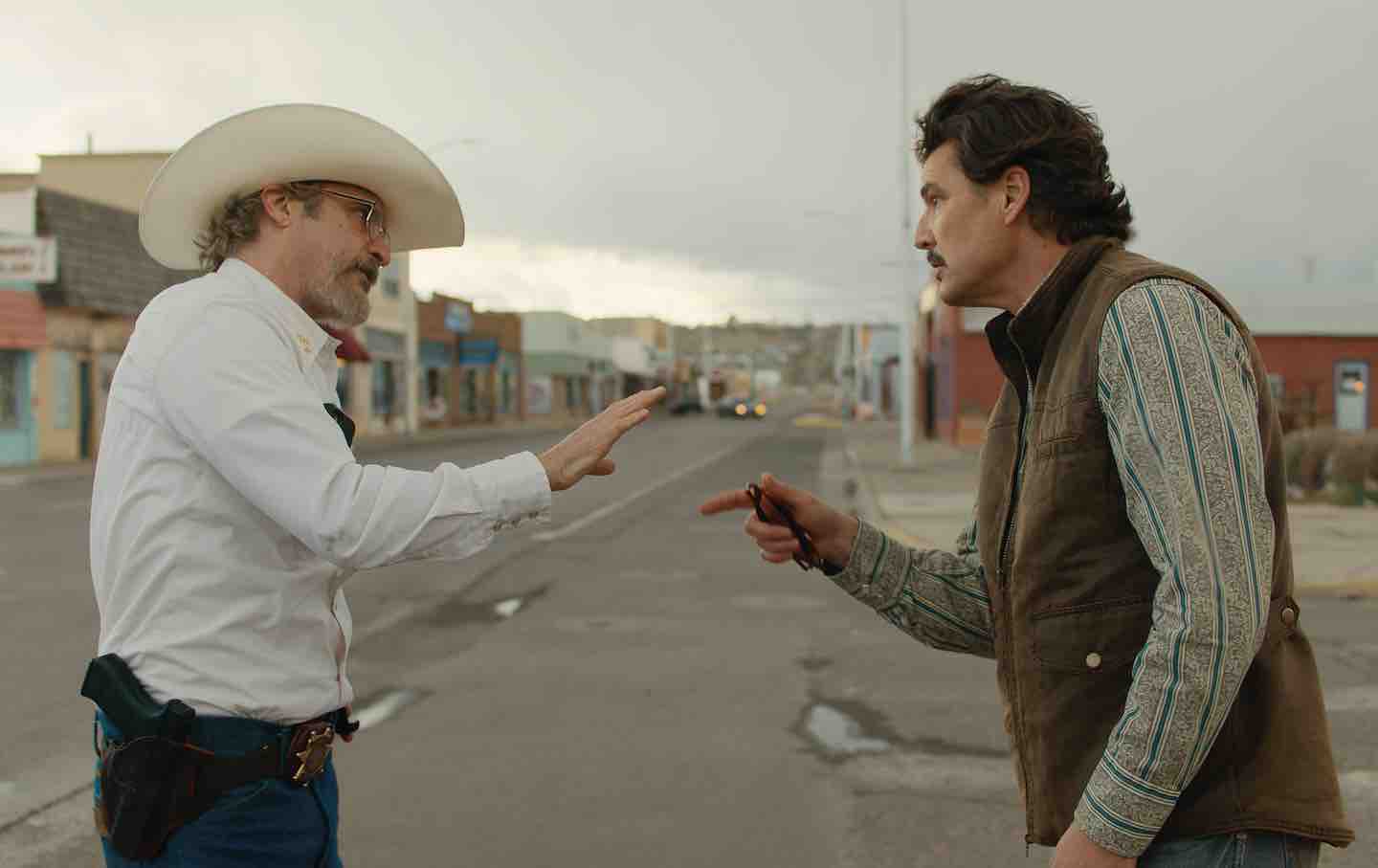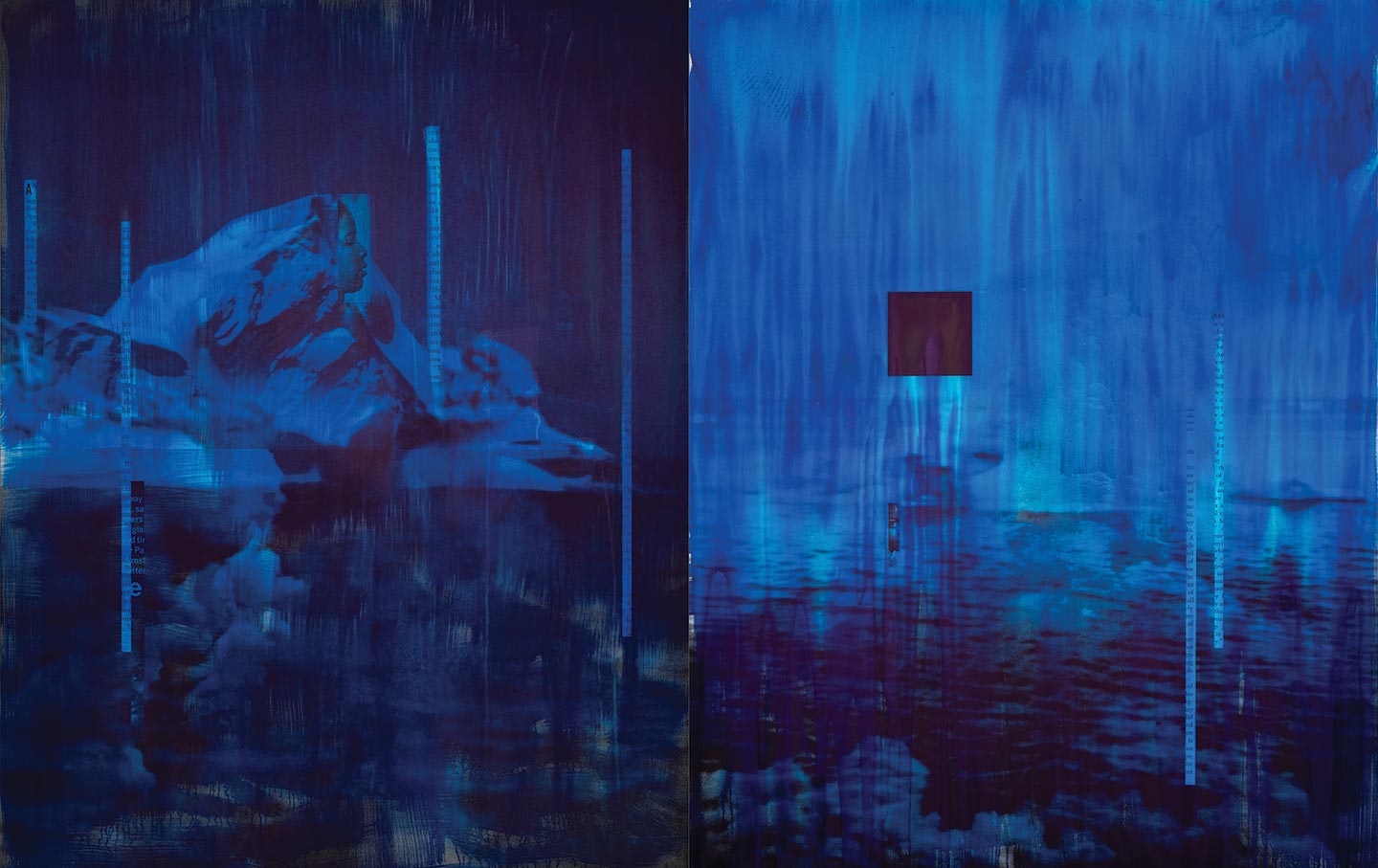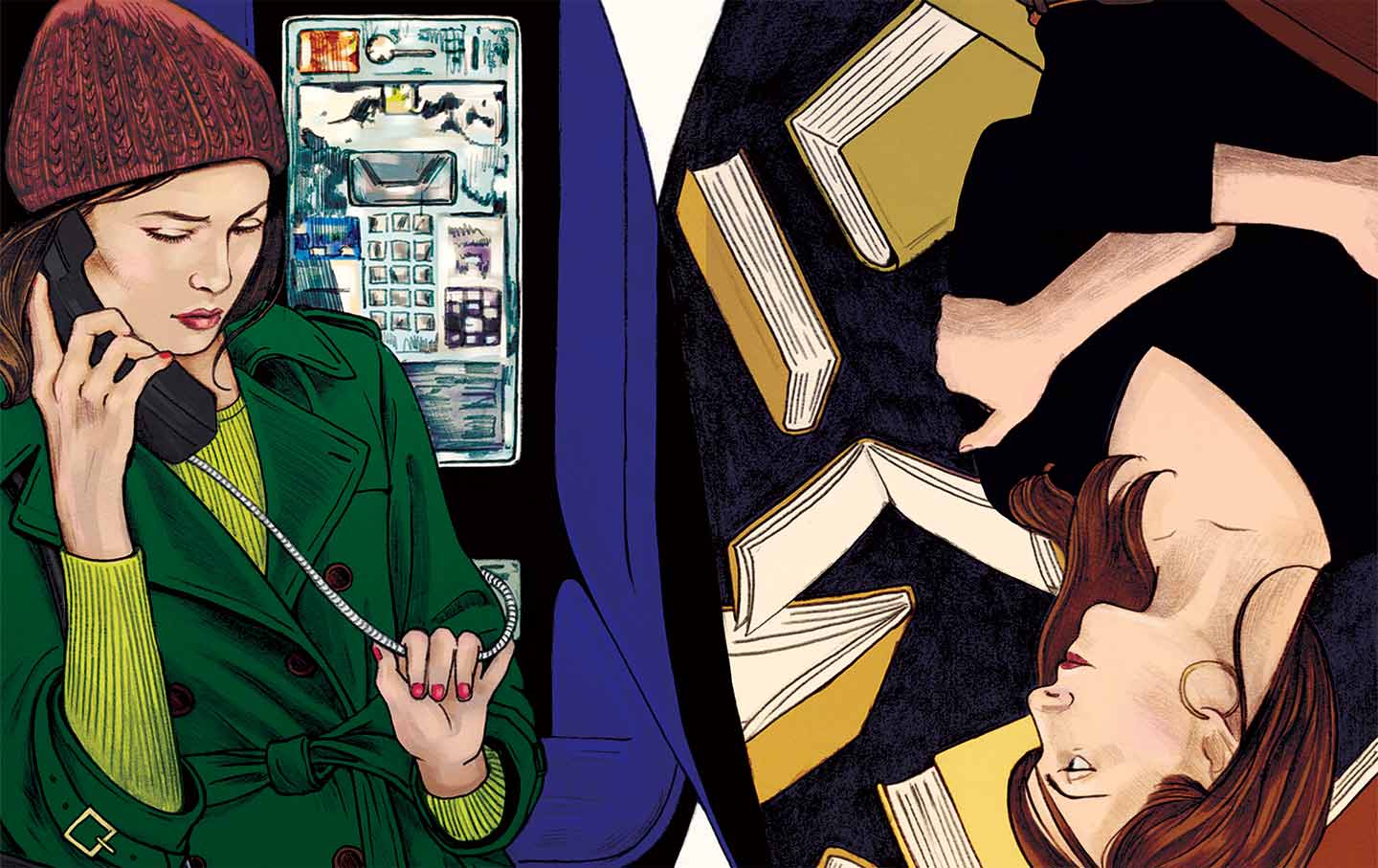Ada Limón: “The Country Has Taught Me That Poetry Lives Everywhere.”
The US poet laureate on nature, the art of America, and her new anthology.

Ada Limón is currently serving a second term as the United States’ 24th poet laureate. She is the author of six poetry collections. Her new book, You Are Here: Poetry in the Natural World, is an anthology of stunning original work Limón commissioned from some of the best poets writing in America today. Born in California to a family of Mexican ancestry, Limón now lives in Lexington, Kentucky. I spoke with her recently on the morning that she learned she’d been named one of Time magazine’s Women of the Year.
—Sara B. Franklin
Sara B. Franklin: Where do I find you today?
Ada Limón: I’m on a mountain in my hometown—Sonoma, California. My friends have property on Moon Mountain, in the Mayacamas range. It’s where I stay when I’m home.
SF: What is happening outside? What have you noticed?
AL: It’s been pouring. Flood warnings. Atmospheric river. But it’s gorgeous, too. The rain has let up now. I can see the clouds lifting over the Sonoma Mountain range on the other side of the valley. Beautiful. One of my favorite places on the planet.
SF: That’s such a vivid entry point to talking about your new book, You Are Here. What is the origin story of this book?
AL: When I first became laureate, they asked me, “What do you want to do for your signature project?” Of course, I was overwhelmed. But I was thinking about how much nature means to me in my own work, and how speaking about nature is also a way of talking about the climate crisis. It felt crucial to do something that blended poetry and nature, but I didn’t want to do it in a way that felt forced. I wanted it to be rooted in what poetry can actually do. Poetry can allow you to pay deep attention. The brain can expand, and beyond that, the heart can expand.
I was really lucky to partner with the National Parks to do poetry installations. That, to me, is a beautiful way to celebrate the sacred spaces we’ve created and honored. But that felt like intentional nature: You drive to Yosemite. You go to Yellowstone. And I thought, “What is the counterbalance to that?” It has to be the ways in which nature is all around us. The ways in which we are nature. And that’s when I conceived of the anthology. These poets all sent me these original poems that are truly stunning. I think receiving the poems is one of the most emotional things that has happened to me during the laureateship. Every single one of them really spoke to the different ways we interact with nature. Whether it’s urban nature, intentional nature, the protected lands, all of these things. And the ways that we are finding ourselves grieving for a place that is changing.
SF: I love the idea in the introduction to the book that not just the poets but the poems themselves are part of a collective. You quote this wonderful line from bell hooks: “Rarely, if ever, are any of us healed in isolation. Healing is an act of communion.” I wonder what working on this collection taught you about interrelatedness?
AL: When I am feeling untethered, isolated, or overwhelmed by the true terror of humanity, I can find myself choosing to lie on the ground to get as close to the earth as possible. I think, “I need snake nature. I need worm nature. I need to feel a part of this.” My work is always about trying to devote myself to the earth, to be worthy of the earth.
When I got all these poems—there are 50 of them—and I put them all on my table and on the floor, I thought, “This feels like nature itself.” It felt like a living thing. I said, “Something is happening here. This is an ecosystem.”
That was what really shifted in my perspective. We have that ability to not only see ourselves as part of nature, but also make something that is a living thing. I felt that tangible living nature of poetry when I started to put the anthology together. It was really a magical thing for me. I put it together in an hour. It was like, “I know where they go.” It felt like these natural openings, these natural transitions.
SF: I wonder if you thought of yourself in that moment as an editor, or if there’s another term that feels more accurate.
AL: I didn’t feel like an editor at all. I felt more like a steward, like a caretaker, like I was only trying to make sure that every plant was in its right spot to get enough light.
SF: I’m curious about how the laureateship has shaped your thinking about yourself and about public life. What have you learned about the country?
AL: What has really surprised me is that I have not found that people need to be convinced to like poetry. That’s what I thought the job was: to go out and convince people. But art is happening in every community.
It’s maybe the biggest lesson to me: You’re not going out there to promote poetry, you’re going out there to celebrate the poetry that’s already living in our communities. People are enthusiastic. They’re writing, they’re reading. The country has taught me that poetry lives everywhere. That’s something that I didn’t know. Part of me thought—you know, heavy fist—“Poetry matters!” And it wasn’t that; it was more of an open hand. I got to sit there and receive poems. That was a major shift in the way I thought about who we are as a people, and where we find hope.
SF: In your introduction, you wrote, “How do we live? That was the question that kept returning to my mind. How do we live?” I’ve heard you speak about the role poetry can play in interior spaces in our individual lives. But I wonder if you’ve come to think about that question— “How do we live?”—as it relates to the role of both poet and poem in public or civic life.
AL: There’s a level at which everything is about action. That’s very important—we need our activists. But we also need spaces to feel, to grieve, and to process. And I think that sometimes we move forward, or think we can move forward, without sitting in grief, without sitting in sorrow.
Poetry is still that place where we can do some healing, where we can put our rage, and where we can put our complicated human emotions. Not only as writers but as readers. Poetry is a white page. It has space around it. And that space is for you to walk in, for you to breathe. You can be moved; you can be shifted without judgment. Poetry holds on to something very dear, which is privacy—the ability to have an internal monologue, to experience someone else’s internal monologue, and have it be a private, humbling moment of beauty or pain.
Popular
“swipe left below to view more authors”Swipe →SF: How do you position yourself in a public role with the very vital and private daily practices that you write and speak so much about?
AL: Honestly, it was the thing that I’ve had to wrestle with the most. I’m an incredibly private person. I write intimate poems. With the laureateship, you are in some ways an ambassador for poetry; then it becomes about the self. And I’ve always sort of distrusted that, because as an artist, it’s always about the work, about what I make. It doesn’t have anything to do with me. I mean, I make it, but it’s also all my ancestors, the land, and every poet and novel that I’ve read, every mentor and every teacher.
So when people make it about me as a person, I’m hesitant to sit in that perception of me. I meditate daily. I have been since 2007. I think again and again my life would be entirely different if I didn’t do it. I write most days. Sometimes it’s just a list: “I need to get these things done.” And then a word comes to mind. I set an intention every day. And I keep that word in my head, whatever it is. Sometimes it’s just “breathe.” Sometimes it’s “honor.” Sometimes it’s “safety,” “protection.” I just hold that and think, “This is what I need to focus on today.”
When it gets overwhelming for it to be about me, I can also say, “OK, it’s about the laureateship, and I want to steward this role as well as I possibly can for the next person that fills my shoes come September 2025.” The way that Gwendolyn Brooks stewarded it, and Robert Hass and Robert Pinsky and Natasha Trethewey and Joy Harjo and Tracy K. Smith and Juan Felipe Herrera. They’re with me. So when I struggle in any way, I conjure them in my mind and in my heart, and I try to make it much more about the collective, much more about the legacy of poetry and the continuation of poetry. That’s how I can find room for my own life to flourish in the role.
SF: Is there something about your time in the role to date that has moved you most?
AL: There are three things that have really struck me. Working with the National Parks, and the poets in this anthology too, it just felt like this universe of “yes” that I’m not used to. Another was writing the NASA poem for the Europa Clipper, and the way in which that poem has been cared for and held within the NASA community and the community at large. It was signed by over 2 million people! I got to see the draft of the vault plate it’s engraved on. To think that they wanted to send poetry when they could’ve sent anything else. And to do my best to represent who we are as a people—that has been a huge gift. It’s shifted me.
And lastly is the poem that I wrote, “Startlement,” which is the poem that goes on the front matter of the National Climate Assessment report. Working with the climate scientists, they really guided me to make a poem that spoke to where we were on the earth. I feel most alive when I’m making a poem, when I’m making something that feels like an offering. Those three things felt like an offering.
SF: What do you think you will miss most about holding this role?
AL: The first will be to have that ability to lift up the community onto a larger stage, and hopefully that’s something that will continue in my life: to really lift up poetry, and to be not only its ambassador but its defender, its lover. We don’t have that opportunity very much, to speak to the power of poetry. I’ll miss that constant rearticulation of why poetry matters.
And I’ll miss the library. The Library of Congress is the largest library in the world. That unfettered access, that community, the people at the library that have been so supportive… I think I’ll always be close to them. But that’ll be a heartache for me.
Take a stand against Trump and support The Nation!
In this moment of crisis, we need a unified, progressive opposition to Donald Trump.
We’re starting to see one take shape in the streets and at ballot boxes across the country: from New York City mayoral candidate Zohran Mamdani’s campaign focused on affordability, to communities protecting their neighbors from ICE, to the senators opposing arms shipments to Israel.
The Democratic Party has an urgent choice to make: Will it embrace a politics that is principled and popular, or will it continue to insist on losing elections with the out-of-touch elites and consultants that got us here?
At The Nation, we know which side we’re on. Every day, we make the case for a more democratic and equal world by championing progressive leaders, lifting up movements fighting for justice, and exposing the oligarchs and corporations profiting at the expense of us all. Our independent journalism informs and empowers progressives across the country and helps bring this politics to new readers ready to join the fight.
We need your help to continue this work. Will you donate to support The Nation’s independent journalism? Every contribution goes to our award-winning reporting, analysis, and commentary.
Thank you for helping us take on Trump and build the just society we know is possible.
Sincerely,
Bhaskar Sunkara
President, The Nation
More from The Nation

The Empty Provocations of “Eddington” The Empty Provocations of “Eddington”
Ari Aster’s farcical western is billed as a send-up of the puerile politics of the Covid years. In reality, it’s a film that seems to have no politics at all.

The Rot at Fort Bragg The Rot at Fort Bragg
Seth Harp exposes how all the death and crime surrounding one military base is not an aberration but representative of the fratricidal impulse of the armed forces at large.

The Revolutionary Politics of “Andor” The Revolutionary Politics of “Andor”
The latest addition to the "Star Wars "series offers an intricate tale of radicalization and its costs.

Billy Wilder’s Battle With the Past Billy Wilder’s Battle With the Past
How the fabled Hollywood director confronted survivor’s guilt, the legacies of the Holocaust, and the paradoxes of Zionism.

The Art and Genius of Lorna Simpson The Art and Genius of Lorna Simpson
A new exhibition at the Metropolitan Museum of Art tracks what has changed and what has remained the same in the artist’s work.

Catherine Lacey’s Missed Connections Catherine Lacey’s Missed Connections
In her most personal work, "The Möbius Book", Lacey uses a devastating moment of heartbreak to ruminate on the messy intersections between life and writing.


